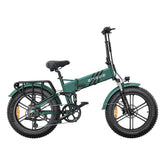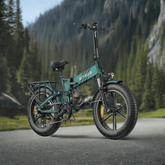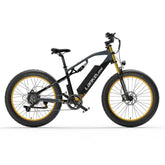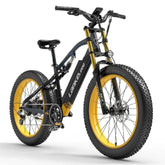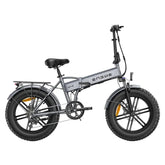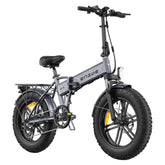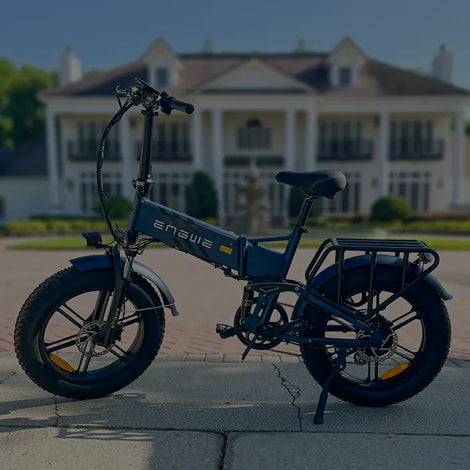Urban commuting presents a daily struggle for many individuals, who grapple with challenges like traffic congestion, crowded public transportation, and the quest for an eco-friendly mode of transportation with the Commuter Cycle.
Among the myriad of transportation options available, cycling stands out as a promising solution. However, traditional biking comes with its own set of challenges, particularly for those commuting longer distances or facing hilly terrain.
The prospect of arriving at work sweaty and fatigued often dissuades urban commuters from embracing cycling as a viable mode of transport. Coupled with the logistical challenge of carrying work gear and running errands, these concerns can further discourage individuals from choosing biking for their daily commute. However, with the introduction of electric bikes, these obstacles are being addressed. Electric bikes offer an easier and more accessible option for urban commuters, providing assistance with pedaling and reducing the physical strain of cycling.
Decline In Cars and Public Transportation Usage
The electrical bike offers pedaling and other types of assistance that allow cyclists to take a trip longer distances with minimal effort. Compared to typical bikes, they have properly obtained individuals to change from driving to pedal-assisted biking.
Previous economic difficulties, digital bikes allow the ease of access of two-wheeled transportation to those with physical restrictions and older grownups. The use of an electric road bike comes with details health and fitness requirements. However, it is an authentic option for a more substantial series of individuals.
Electric Bike Boosts Cities Availability
E-bikes were initially targeted at adult commuters but have since gained traction among a wider demographic, including younger generations.
This shift reflects a cultural change where e-bikes are no longer viewed as mere practical necessities but as desirable and luxurious transportation options.
Moreover, the accessibility of e-bikes is broadening, catering to individuals with physical limitations and older adults who may find traditional biking challenging. This increased accessibility enhances the appeal of e-bikes as a viable transportation option for a diverse range of urban commuters.
Inspire Modern Cycling Facilities
The rise of e-bikes is driving a transformation in urban infrastructure. Cities are investing in bike lanes and cycling facilities to accommodate the growing number of cyclists on their streets. This includes the development of dedicated e-bike lanes and bike-sharing programs, making it easier for commuters to access and use e-bikes for their daily travels.
Additionally, the design of modern cycling infrastructure is being influenced by the surge in e-bike usage. This reflects an evolving urban landscape that prioritizes sustainable transportation options.
Commuter Cycle: Less Congestion
The surge in electric bike popularity has notably eased congestion on city streets, resulting in fewer vehicles and less crowded public transportation terminals. This transition has redefined urban cycling, providing commuters with a convenient and stress-free mode of transportation through electric bikes.
Some cities are now experiencing smoother traffic flow and relief from overburdened transit systems. However, concerns have arisen regarding the potential impact of increased electric bike usage on other transportation modes, such as public transit. This could lead to decreased demand and funding.
These concerns are valid, given the critical role of public transit in fostering an environmentally friendly and sustainable transportation system. Public transit serves as a vital lifeline for the elderly and people with disabilities, ensuring accessibility for all.
Nonetheless, in European cities where a significant portion of the population relies on buses and trains, electric bikes are emerging as a visible solution to alleviate the strain on transit systems. They provide commuters with a viable alternative for their daily travels.
Reduced Air pollution
One of the most significant advantages of e-bikes is their positive impact on the environment. By encouraging more people to choose e-bikes over traditional modes of transport, cities can reduce congestion on streets and improve air quality.
Unlike conventional vehicles, e-bikes produce no emissions, making them an environmentally friendly alternative for urban commuters. Furthermore, the reduced reliance on cars and public transportation systems helps alleviate pressure on existing infrastructure. This contributes to a more sustainable urban environment.
The Engwe P275 ST: The Ultimate Electric Bike for the Commuter Cycle
The Engwe P275 ST is a top electric bike for city commuting. It blends sleek design with smart functionality. At its core is the Ananda 250W Mid-drive Motor, providing effortless cruising. It reaches speeds up to 25km/h and handles hills easily. Plus, with a Samsung 36V 19.2Ah battery, it has a range of 260km. The Shimano 9-Speed System adapts to various terrains. Tektro Hydraulic Disc Brakes ensure precise control in all weather conditions.
Features like the Ananda TFT D18 LED display offer real-time monitoring. The bike's design prioritizes safety with 27.5×2.4” city tires with reflective rims. Its ergonomic frame, comfy seat, and adjustable handlebar ensure a personalized ride. For commuters seeking reliability, comfort, and style, the Engwe P275 ST is unmatched.
Commuter Cycle: Embracing a Greener Future
In conclusion, e-bikes are changing the way we commute in cities for the better. They offer a greener, more convenient option for getting around, without the hassle of traffic or crowded buses. As cities continue to invest in biking infrastructure and e-bike technology improves, the future of urban commuting looks brighter than ever. So why not hop on an e-bike and join the movement towards a cleaner, healthier city?
Discover your dream ebike at Ebikes Discount now.

